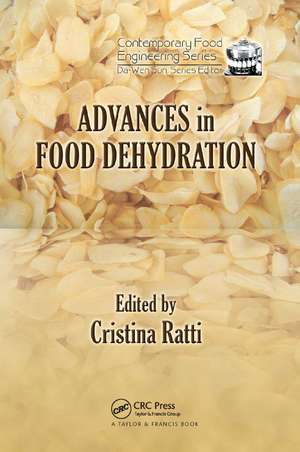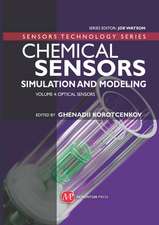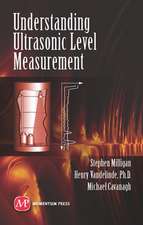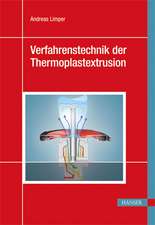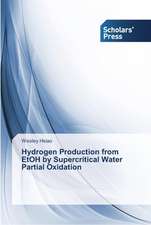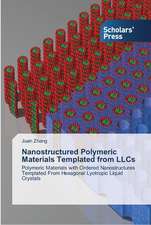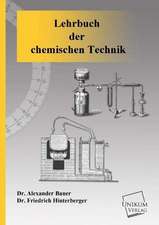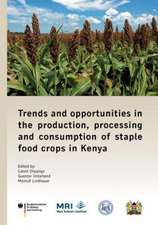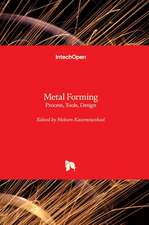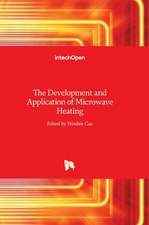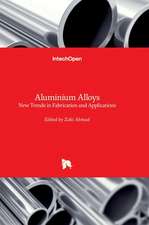Advances in Food Dehydration
Editat de Cristina Rattien Limba Engleză Paperback – 19 sep 2019
Comprehensive Assessment of This Globally Relevant Practice
As a centuries-old food preservation method, dehydration technology has advanced significantly in the past decades as a result of new methods, sophisticated analytical techniques, and improved mathematical modeling. Providing practical and expert insight from an international panel of experts, Advances in Food Dehydration encompasses these revolutionary advances and effectively supplies the knowledge base required to optimize natural resources and reduce energy requirements in order to meet growing demand for low-cost, high-quality food products.
Discusses Ways to Best Optimize Natural Resources
Under the editorial guidance of food engineering and dehydration authority Cristina Ratti, this resource addresses the three biggest challenges associated with food dehydration:
- The complex nature of food systems together with the deep structural and physico-chemical changes that foodstuffs undergo during processing
- The difficulty to define quality in quantitative terms and to develop appropriate control techniques
- The lack of realistic models and simulations to represent the phenomena
The book’s well-developed chapters explain the structural and physico-chemical changes that food undergoes during dehydration, while discussing ways to optimize natural resources. In addition to describing non-convectional heating sources such as microwaves, infrared, and radio frequency, the text also examines the impact of drying on nutraceutical compounds, the bases of rehydration of dry food particles and the stresses on microorganisms during drying and their stability during storage. Advances in Food Dehydration is a user-friendly volume that concisely links the gamut of dehydration concepts into one cohesive reference.
| Toate formatele și edițiile | Preț | Express |
|---|---|---|
| Paperback (1) | 489.26 lei 6-8 săpt. | |
| CRC Press – 19 sep 2019 | 489.26 lei 6-8 săpt. | |
| Hardback (1) | 1243.49 lei 6-8 săpt. | |
| CRC Press – 21 noi 2008 | 1243.49 lei 6-8 săpt. |
Preț: 489.26 lei
Preț vechi: 575.60 lei
-15% Nou
Puncte Express: 734
Preț estimativ în valută:
93.62€ • 100.11$ • 78.06£
93.62€ • 100.11$ • 78.06£
Carte tipărită la comandă
Livrare economică 17 aprilie-01 mai
Preluare comenzi: 021 569.72.76
Specificații
ISBN-13: 9780367386368
ISBN-10: 0367386364
Pagini: 467
Dimensiuni: 156 x 234 x 33 mm
Greutate: 0.45 kg
Ediția:1
Editura: CRC Press
Colecția CRC Press
ISBN-10: 0367386364
Pagini: 467
Dimensiuni: 156 x 234 x 33 mm
Greutate: 0.45 kg
Ediția:1
Editura: CRC Press
Colecția CRC Press
Public țintă
Professional ReferenceCuprins
Dehydration of Foods: General Concepts. Glass Transition Based Approach in Drying of Foods. Application of Image Analysis in Food Drying. Dehydration and Microstructure. Convective Drying of Foods. Advances in Spouted Bed Drying of Foods. Osmotic Dehydration Technology in Food Processing – Application and Development. Foods Freeze-Drying: Fundamentals and Tendencies. Rehydration and Reconstitution of Foods. Dehydration Processes For Nutraceuticals And Functional Foods. Drying of Microorganisms for Food Applications. Dryer Modelling. Non-Conventional Heating Sources During Drying. Energy Aspects in Food Dehydration. Novel Food Dryers and Future Perspectives.
Descriere
Dehydration is a traditional food preservation method that has advanced significantly in past decades as a result of new dehydration methods, sophisticated analytical techniques, and improved mathematical modeling. Advances in Food Dehydration provides a practical understanding of dehydration and the latest developments in the food industry. This book explains the structural and physic-chemical changes that food undergoes during dehydration and discusses ways to optimize natural resources. Non-convectional heating sources such as microwaves, infrared, and radio frequency are described. The text also examines the impact of drying on nutraceutical compounds, the bases of rehydration of dry food particles and the stresses on microorganisms during drying and their stability during storage.
